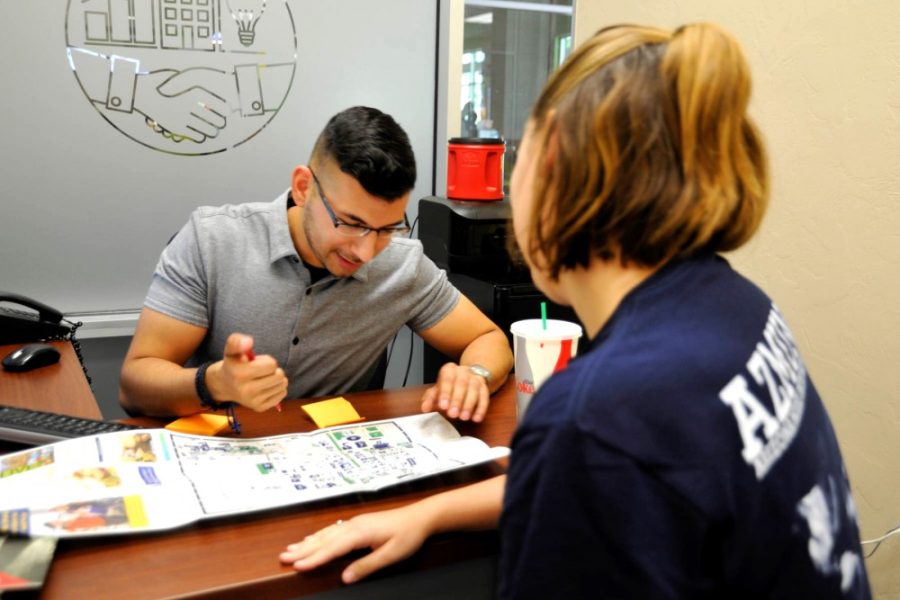The UA program Support. Opportunity. Success. recently expanded the methods students can use to communicate with staff to ask questions.
The program, housed in the Office of Student Engagement, offers a resource for students with general questions about anything university-related to have their questions answered.
Last fall, the Student Affairs staff created an email address where students could ask questions about things if they didn’t know where to go. Based on the feedback and the usage of the email from students, the SOS program was expanded, according to Jenny Nirh, the assistant director for Academic Success and Achievement.
The program now offers more ways for students to have their questions answered beyond email: A website with live chat, a phone number, text messaging, a web form and an office with two staff that work with the SOS program.
Already, the revamped SOS has had plenty of interaction with students. Throughout the entirety of last year, between 250 and 300 students used SOS through emails, Nirh said. This year, SOS has received that same number of interactions in the first two weeks of the school year.
The expanded variety of modes of communication might have contributed to this increase in use of SOS, Nirh said, which also may have been aided by the different kinds of outreach and marketing SOS did to promote the program.
Ramses Sepulveda, project coordinator for the SOS program, estimated that there have been around 25 people a day interacting with SOS.
Sepulveda said common questions include: How to find student ID numbers, how to figure out financial aid and how different general education requirements work.
Sometimes, to answer questions from students, SOS staff will direct students to other services on campus that they can talk to.
“We really just want to make sure that everyone knows all the different areas that can help them on campus, so if it’s something easy, then we can definitely help them,” Nirh said. “If it’s something more complicated, then we’re connecting them with the right people in the correct department to make sure they’re getting the best service really or just the best connection to campus they can get.”
When answering students’ questions, Nirh said that she and Sepulveda sometimes search the UA website to make sure the information they give students is accurate, but that they also draw on institutional knowledge that they both have gained over their time at the UA and knowing who to speak to about something.
“I got to work here as an undergraduate student and as a professional staff member,” Sepulveda said. “I took for granted … all the information that I know just from being here for so long and, to me, it’s really rewarding to be able to pass that on to students.”
Nirh said that the SOS program has primarily gotten questions from freshmen.
Kevin Wong, a chemistry freshman said that SOS would be helpful for students since “most freshmen are clueless.” While Wong said he hadn’t heard of SOS, he would most likely use it in the future if he has a problem.
As for the future of the program, Nirh said that they will see how the program goes and how students respond, with the possibility of expansion hinging on the demand for its help.
Nirh said she thinks students sometimes don’t know that they have questions and it can be helpful for them to know that there is someone they can ask about anything.
“We want to make sure that we’re helping students in whatever way we can,” Nirh said. “We don’t want students lost on campus; we don’t want students confused about classes or getting behind because they couldn’t find tutoring and didn’t know who to ask. We just want to make sure that they’re connected … that’s the most important piece.”
Follow Ava Garcia on Twitter.









